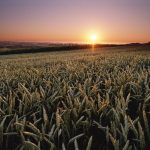Tag Archives Environment

Canada moves to develop sustainable agriculture strategy
The Canadian Federation of Agriculture will co-chair the committee

Quinlan Farms wins Essex conservation award
Award given for investments in soil and water health, production diversity

How to expand production and slash emissions
A recent report concludes that carbon sequestration is the key to producing more crops while reducing greenhouse gases

Food systems must transform: COP27
Climate change meeting emphasized the need to look at specific production systems

How mixing farms with forests can help nations reach net zero
Planting trees on working farms can curb emissions, boost income but money and time are barriers

Opinion: Cows, oil and elephants
Livestock’s contribution to greenhouse gas emissions needs to be put into context

Economist sounds alarm over carbon reporting
Prof draws attention to how policy is affected by ignoring the carbon sequestration value of grain production

Ontario government’s Bill 23 accelerates concern about loss of farmland
More Homes Built Faster Act will allow new house builds on protected lands

Opinion: Hearing the Silent Spring 60 years on
A reflection on what we’ve learned about pesticides since publication of the bestseller

Farm scale viability of fossil fuel alternatives questioned
Testimony continues on whether farmers should be exempt from carbon pricing on more fuels
